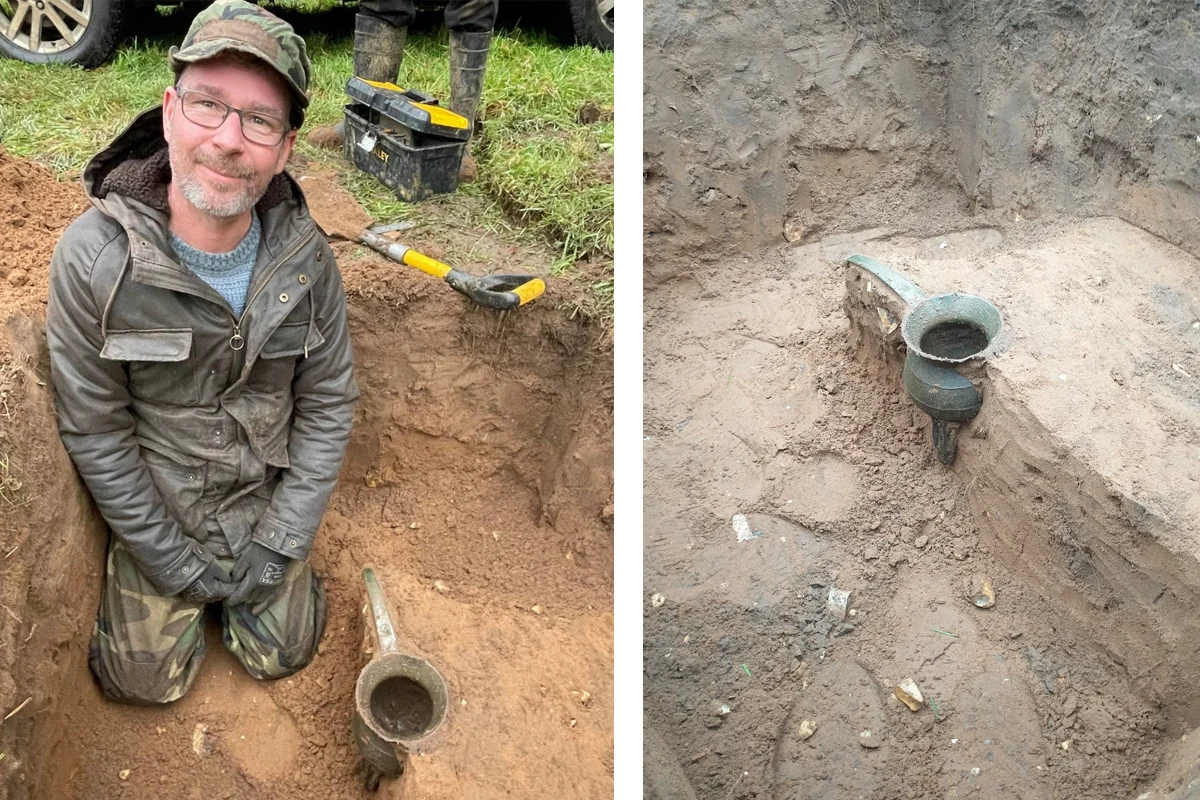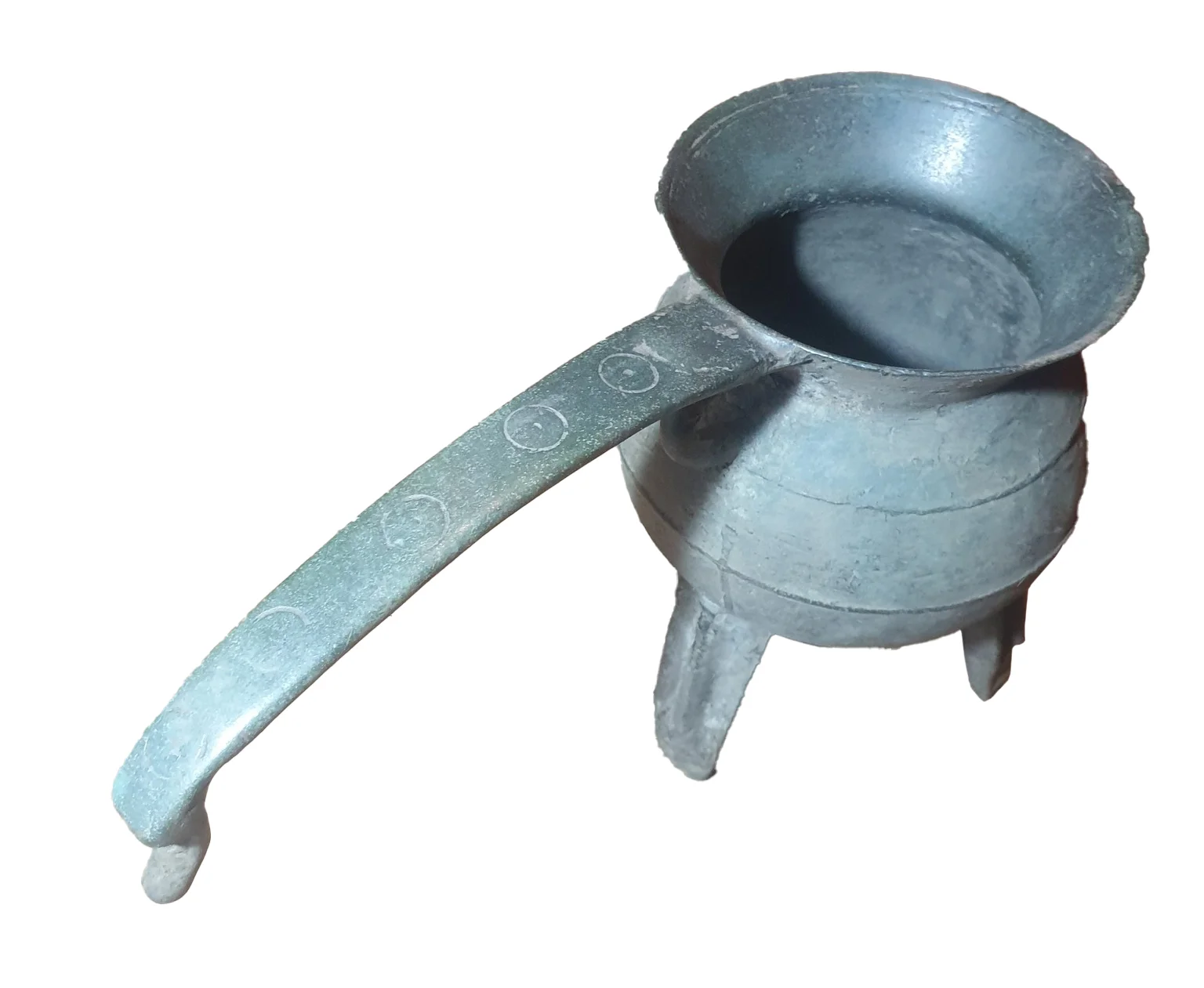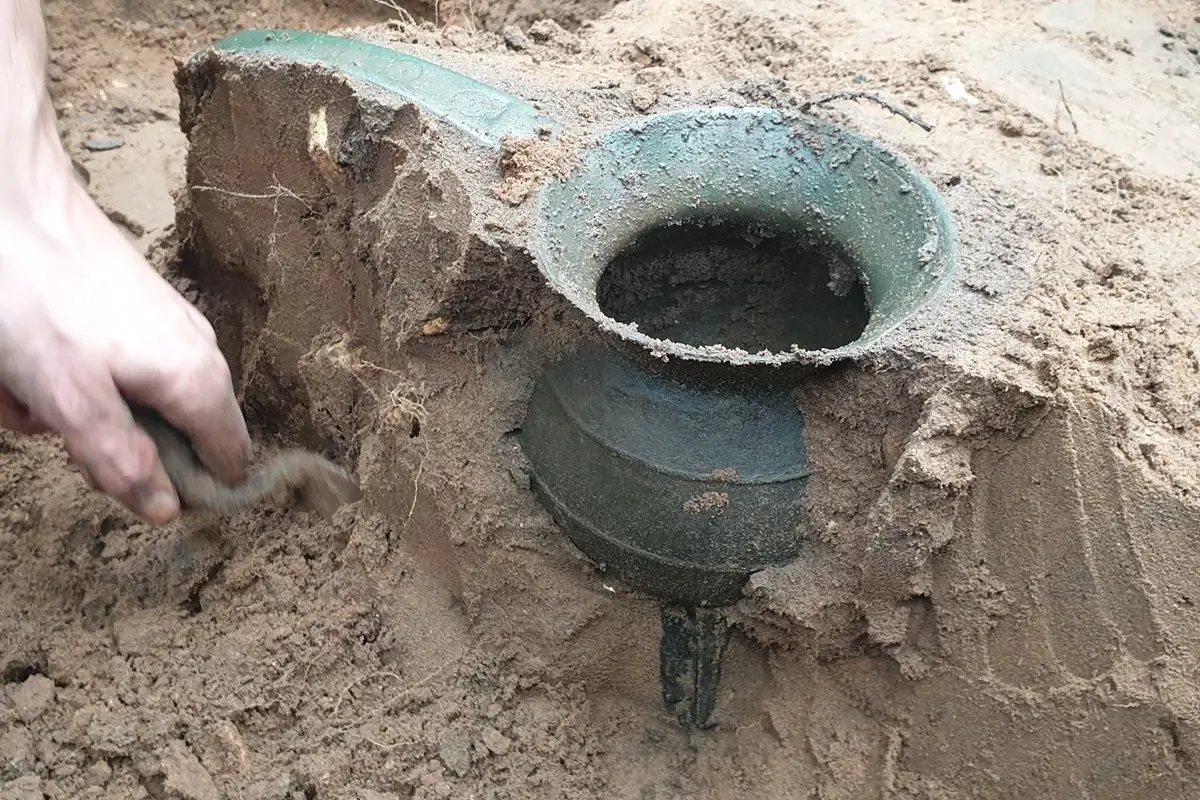Malcolm Weale, a metal detectorist and self-described history detective, has discovered a perfectly preserved posnet during a survey near Thetford, England.
A posnet is a small, tripod-legged pot used to cook dishes over an open hearth. Unlike cauldrons, which have an arc-shaped hanger and/or integral handles, a posnet is cast with an extending handle similar to modern-day saucepans.
Cast in copper alloy during the Medieval period, the Thetford posnet features a handle adorned with circular motifs and a vessel body encircled by two decorative bands.

Speaking to HeritageDaily, Weale explained that the area of the discovery was once a deserted medieval village (DMV). Many DMVs are believed to have been abandoned in the 14th century because of the Black Death, which decimated much of their population.
“I knew the posnet cauldron was as an important discovery, I stopped and called archaeologists from Norfolk Museums Service (NMS) who arranged an emergency excavation on the same day to save any archaeology in situ,” said Weale.

Finding the posnet in an upright position and perfectly preserved raises questions as to how it came to be buried several feet under pastureland. According to Weale, it is possible that the item was intentionally deposited for safekeeping and subsequently forgotten by the owner.
Weale has made several other nationally significant discoveries over the years, including hawk tags linked to Elizabeth I’s cousin, a hoard of Roman coins from the late 4th or early 5th century, and a gold mourning ring made in memory of Sir Bassingbourne Gawdy, who died in a hunting accident in 1723.
Header Image Credit : Malcolm Weale





